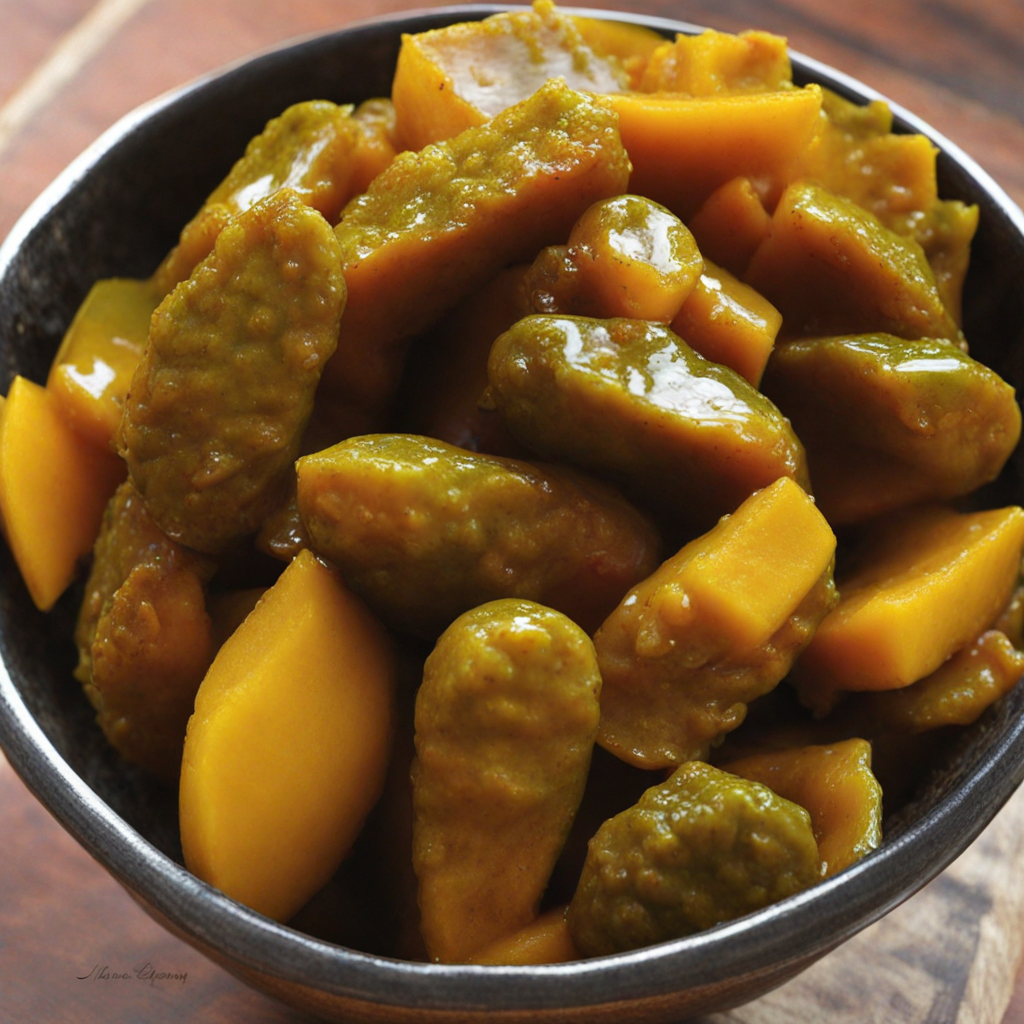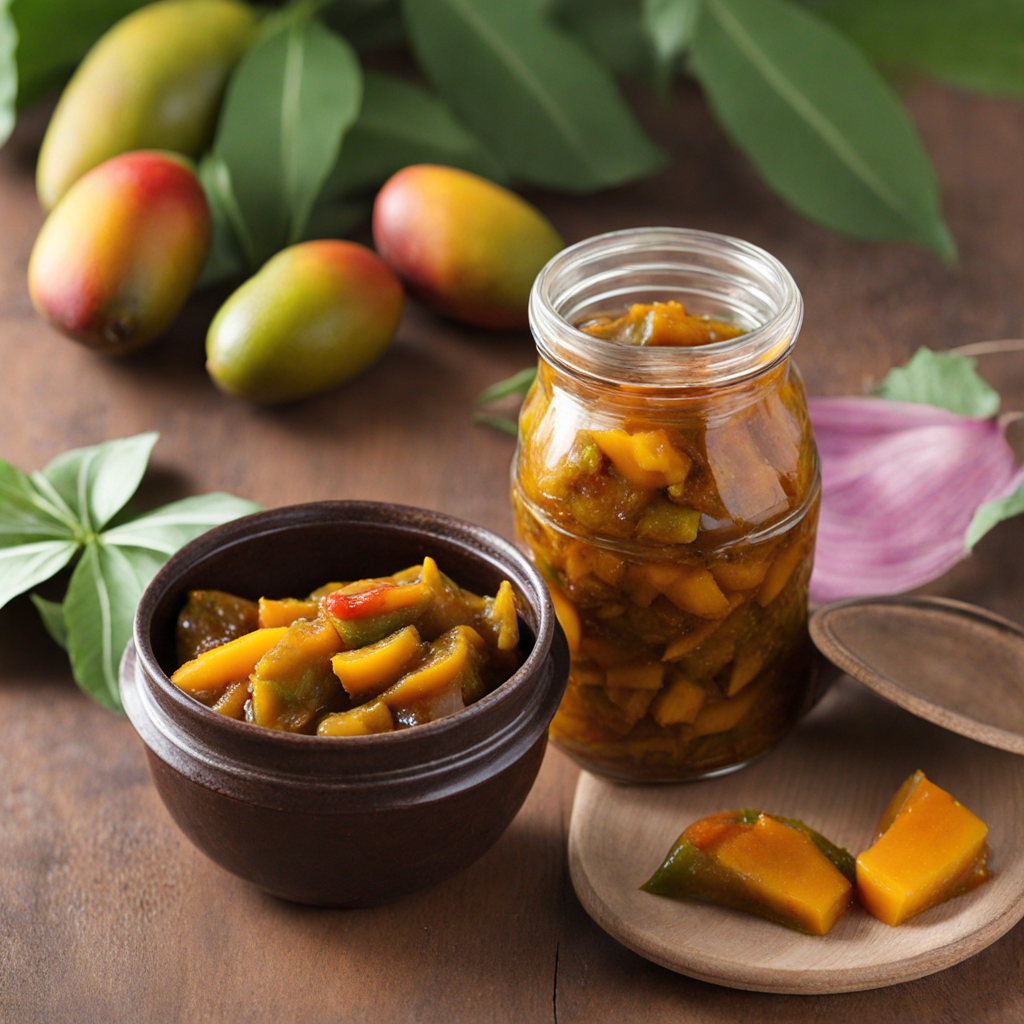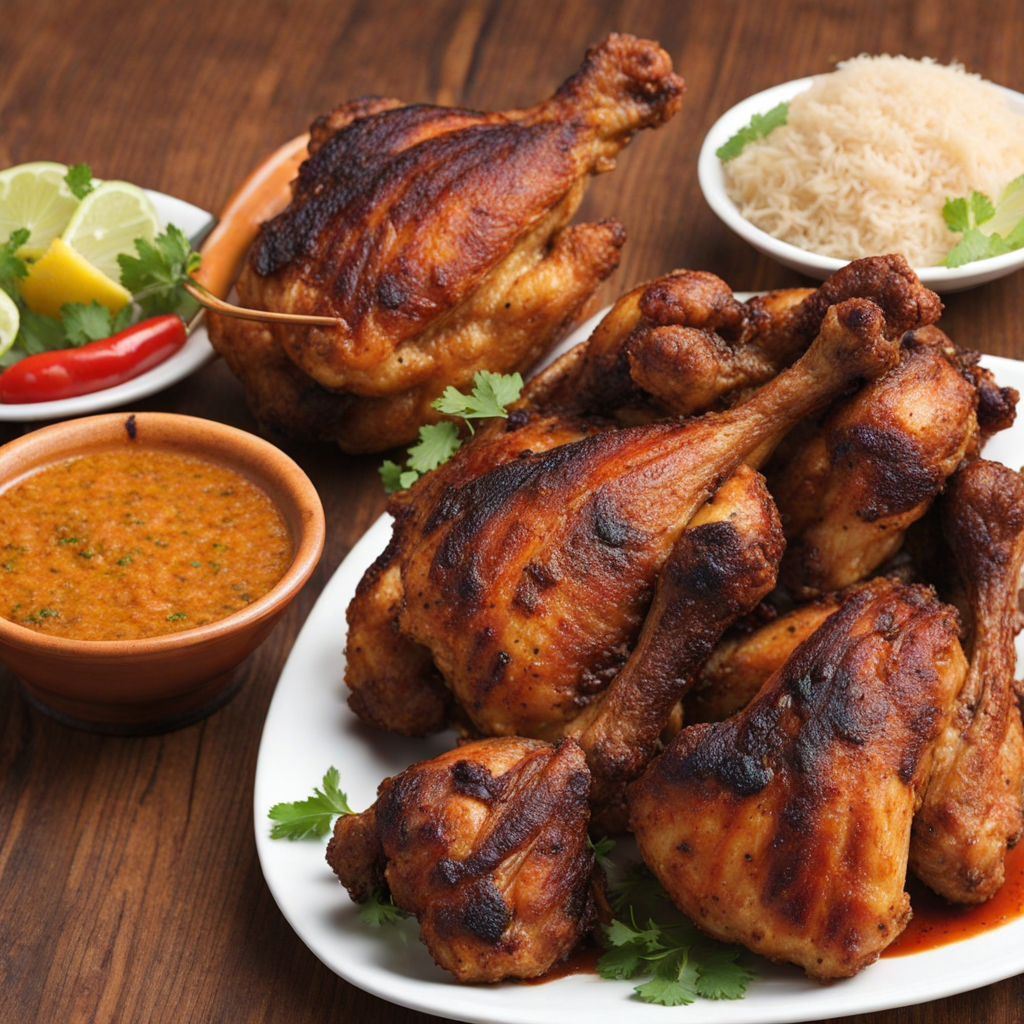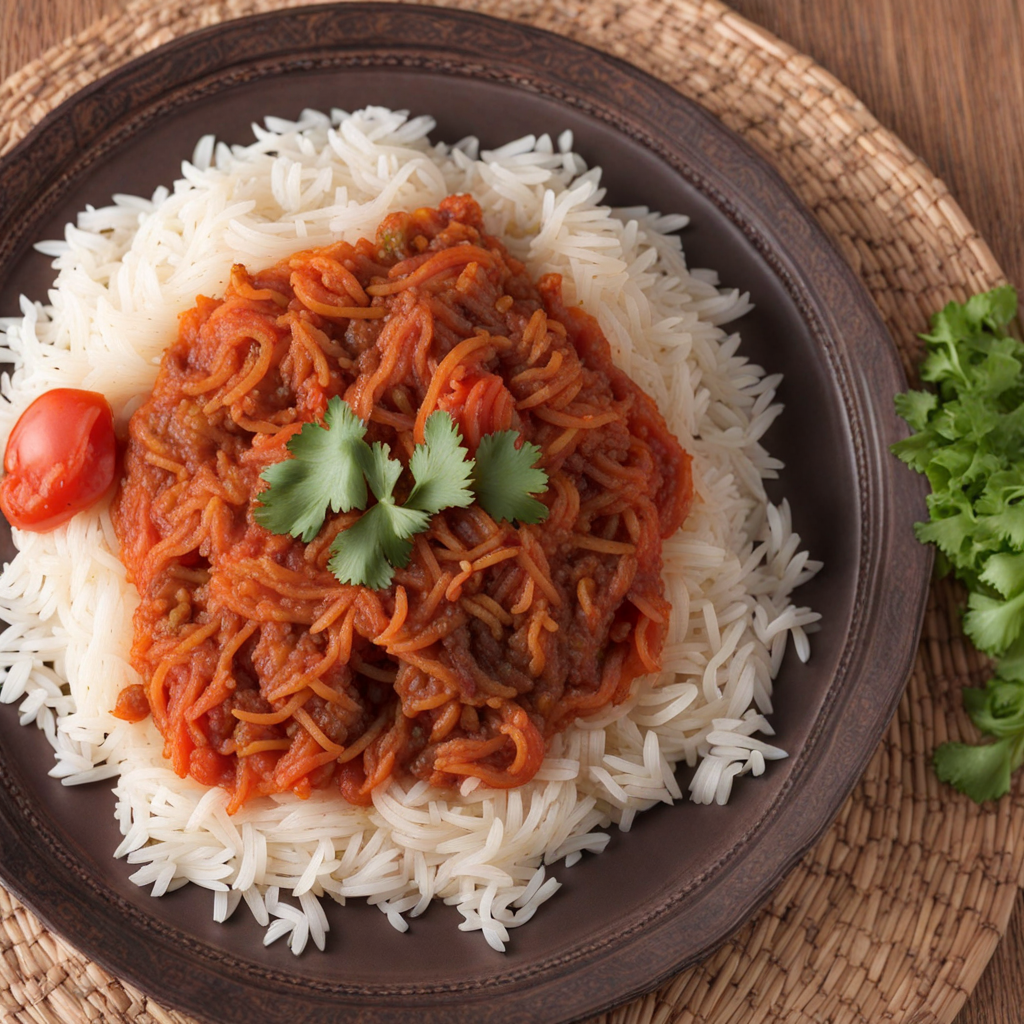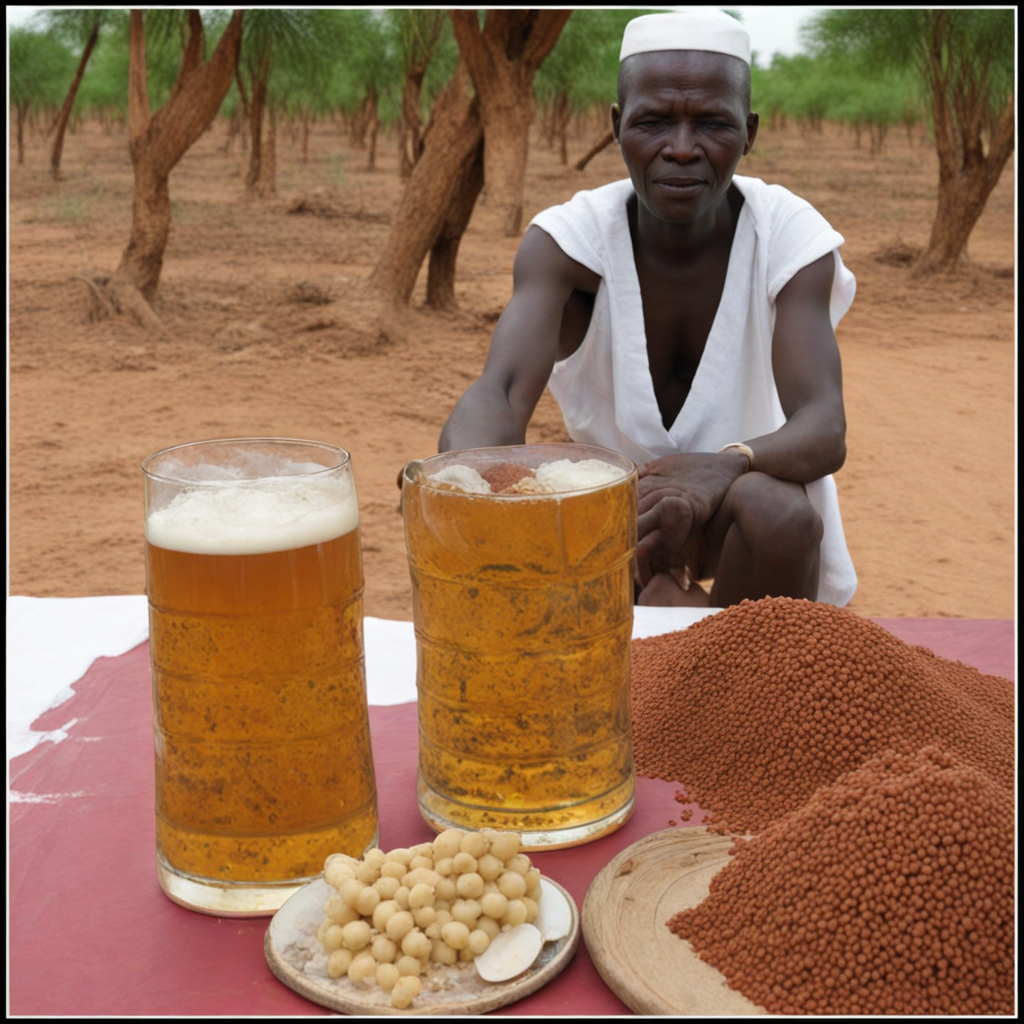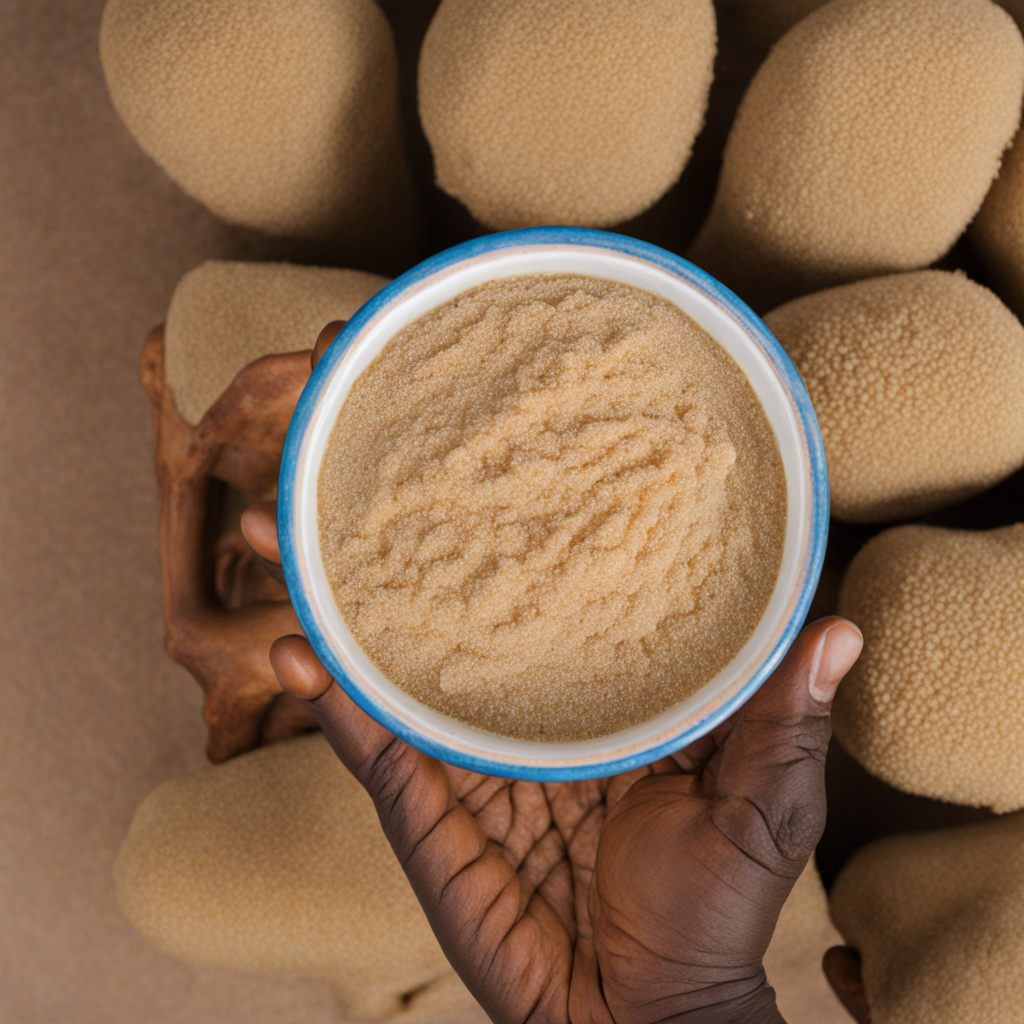Mango Pickle
Mango Pickle from Burkina Faso is a vibrant and tantalizing condiment that perfectly captures the essence of the region's culinary heritage. Made primarily from unripe mangoes, this pickle is characterized by its zesty and tangy flavor profile, complemented by an array of spices that reflect the local palate. The mangoes are typically sliced into bite-sized pieces and marinated in a mixture of salt, chili peppers, and other aromatic spices such as ginger and garlic. This infusion allows the fruit to absorb the flavors, resulting in a bold and savory taste that is both refreshing and invigorating. As you delve into the world of Mango Pickle, you will discover the delightful balance between sweetness and acidity. The unripe mangoes provide a crisp texture that contrasts beautifully with the heat from the chili peppers, while the spices lend warmth and depth to each bite. This pickle is not just a side dish but can elevate meals by adding a burst of flavor to rice, grilled meats, or even flatbreads. It serves as an excellent accompaniment that enhances the overall dining experience. The versatility of Mango Pickle makes it a beloved staple in many Burkinabé households. Whether enjoyed during festive gatherings or as a flavorful addition to everyday meals, it embodies the spirit of communal dining and the rich agricultural bounty of Burkina Faso. This tantalizing condiment invites adventurous eaters to explore the unique tastes of West Africa, offering a taste of tradition that is both accessible and unforgettable.
How It Became This Dish
A Culinary Journey Through Pickle de Mangue: The Essence of Burkina Faso #### Origin and Ingredients Pickle de Mangue, or mango pickle, is a delightful culinary creation that hails from the vibrant West African nation of Burkina Faso. This tangy and spicy condiment is primarily made from raw green mangoes, which are abundant in the region, especially during the mango season. The use of mangoes in pickling speaks to the agricultural wealth of Burkina Faso, where this tropical fruit flourishes, thanks to the country’s warm climate and fertile soil. The basic ingredients of Pickle de Mangue include unripe mangoes, salt, and a variety of spices, often including chili peppers, garlic, and ginger. This simple yet flavorful combination reflects the traditional cooking practices of the Burkinabé people, who have long used fermentation and pickling as methods for preserving food and enhancing flavors. #### Cultural Significance In Burkina Faso, food is deeply intertwined with culture and identity. Pickle de Mangue is not just a condiment; it is a symbol of communal life, celebration, and identity. The preparation of this pickle often involves family gatherings, where the process of selecting mangoes, mixing spices, and creating the pickle becomes a shared experience. It is common for families to make large batches that can be enjoyed throughout the year, embodying the spirit of togetherness that is integral to Burkinabé culture. Mango pickle is often served alongside staple dishes like tô (a dough-like food made from millet or sorghum) and rice, providing a zesty contrast to the otherwise mild flavors of the main dishes. During festivities and communal meals, the presence of Pickle de Mangue signifies hospitality, as offering homemade condiments is a way to honor guests. It is often seen at weddings, religious celebrations, and family reunions, reinforcing social bonds through the act of sharing food. #### Historical Development The history of Pickle de Mangue is as rich as the flavors it embodies. The practice of pickling fruits and vegetables has ancient roots, tracing back to early agricultural societies where preserving food was crucial for survival. In West Africa, various forms of preservation methods, including fermentation and drying, have been utilized for centuries. The pickling of mangoes likely emerged as a natural extension of these practices, taking advantage of the abundant mango harvests. As Burkina Faso evolved through the ages, so too did its culinary landscape. The introduction of spices and new preservation techniques from trade routes and neighboring cultures expanded the flavor profiles of traditional dishes. The influence of Arab traders and later the French colonial presence introduced new spices and cooking methods, which blended seamlessly with local traditions. Pickle de Mangue, thus, transformed over time, incorporating elements from different culinary traditions while remaining rooted in local customs. #### Modern-Day Interpretation Today, Pickle de Mangue is celebrated both in homes and on restaurant menus across Burkina Faso. The condiment has gained popularity beyond its borders, becoming a beloved addition to international West African cuisine. As globalization spreads culinary influences, the traditional recipes have seen adaptations while still honoring their origins. Modern chefs experiment with the pickle, incorporating different fruits and spices while maintaining the core essence of the dish. In Burkina Faso, the rise of food tourism has also brought renewed attention to local dishes like Pickle de Mangue. Visitors seeking authentic experiences are drawn to the rich flavors and vibrant culinary heritage of the country. Cooking classes that focus on traditional pickling methods and the cultural significance of the dish have emerged, allowing both locals and tourists to connect with Burkinabé culture through food. #### A Sustainable Future The preparation of Pickle de Mangue aligns with contemporary movements towards sustainable and local food practices. As awareness about food waste and sustainable agriculture grows, traditional pickling methods are being embraced not just for their flavor but also for their ability to reduce food spoilage. Utilizing seasonal produce like green mangoes allows communities to honor the cycles of nature while preserving their cultural heritage. Moreover, as more people recognize the health benefits of fermented foods, Pickle de Mangue has found a place in modern diets. The probiotic qualities of fermented pickles are increasingly valued for their contribution to gut health, making this traditional condiment relevant in contemporary health discussions. Conclusion Pickle de Mangue is more than just a condiment; it is a celebration of Burkinabé culture, history, and community. Rooted in the agricultural bounty of the land and shaped by centuries of culinary evolution, this tangy, spicy pickle reflects the spirit of Burkina Faso. From traditional family gatherings to modern culinary adaptations, Pickle de Mangue embodies the resilience and creativity of a nation that continues to honor its past while embracing the future. As we savor the flavors of Pickle de Mangue, we are not just tasting a dish; we are experiencing a rich tapestry of history, culture, and community that brings the essence of Burkina Faso to our plates. Whether enjoyed at a festive gathering or as part of a daily meal, this vibrant pickle invites us to engage with the stories and traditions that make food a universal language of connection and celebration.
You may like
Discover local flavors from Burkina Faso


